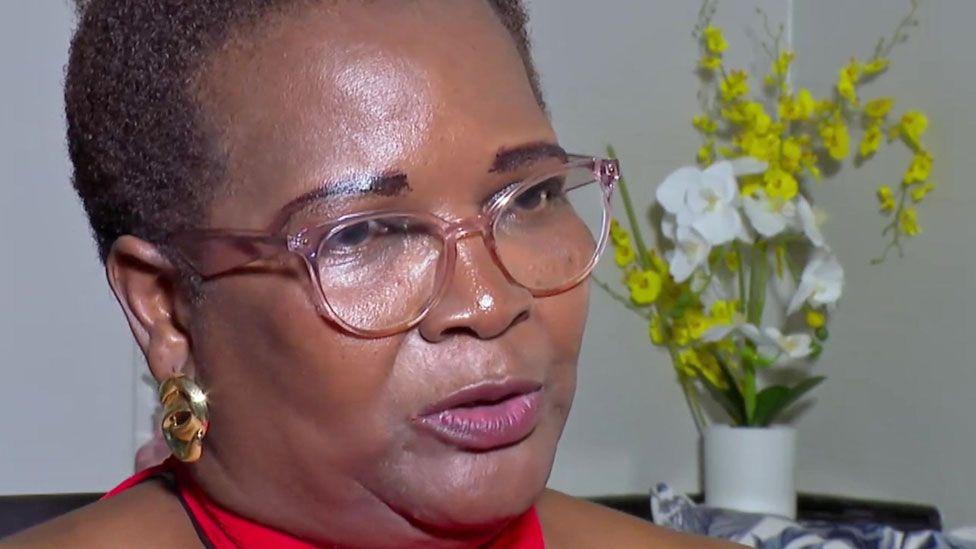The tragic drowning of Guide Nyachuru, a 16-year-old boy at a Christian holiday camp run by the notorious child abuser John Smyth in Zimbabwe, has highlighted a series of systemic failures within the Church of England. Guide’s sister, Edith Nyachuru, openly blames the Church, asserting that it was aware of Smyth’s abusive history and did not intervene, which she believes directly contributed to her brother’s untimely death. Smyth, who relocated to Zimbabwe after being accused of multiple forms of abuse against boys in the UK, had established Zambesi Ministries and continued to conduct camps where he enforced severe physical punishments and promoted highly inappropriate behaviors, such as nudity among the boys, under the guise of “spiritual discipline.”
In 1982, a report by Anglican clergyman Mark Ruston documented the horrific abuse Smyth had committed while running camps in the UK. Boys reported being beaten severely, with injuries so severe that some required medical attention, yet this information failed to reach a wider audience, allowing Smyth to operate unchecked in Zimbabwe years later. Despite being aware of his past, many in the Church community in Zimbabwe accepted Smyth as a respected figure, leading him to continue his abusive practices. Guide’s tragic death occurred shortly after he was dropped off at the Ruzawi School camp, a trip his family believed to be a fun experience, only to result in a heartbreaking call informing them of his drowning the following morning. According to reports, Guide and other boys had engaged in a camp tradition of swimming naked before bed, a practice that not only contributed to his death but was also reflective of the troubling culture cultivated by Smyth.
Edith Nyachuru expressed her shock at the way her brother’s death was mishandled, recounting the distress of being apprehended from viewing his body initially because he was found naked. Guide’s death raised questions about the camp’s supervision and practices, which allowed boys to go swimming unsupervised and likely contributed to Guide’s tragic fate. Witnesses at the camp later described Smyth’s obsession with nudity and corporal punishment, indicating a pattern of grooming behavior aimed at young boys, further demonstrating the dangers embedded in the camp’s structure. Despite being an experienced barrister, Smyth used his education and legal background to wield power over the situation, attempting to intimidate any opposition he faced when complaints arose.
A fellow camper, Jason Leanders, described the terrifying regimen he experienced at the camp, implying that the beatings were almost a normalized part of the experience. With reports of Smyth abusing his position of power, and practices that included checking boys for hidden clothing to avoid punishment, it became increasingly clear that the camp was rife with physical and psychological abuse. Following Guide’s death, lawyer David Coltart began investigating the abuse claims that surrounded Smyth, uncovering the hidden extent of the problem that mirrored the earlier issues Smyth faced in the UK. Despite Coltart eventually compiling a report that aimed to put a stop to Smyth’s activities, bureaucratic impediments and Smyth’s strategic legal defenses led to a frustrating stagnation of justice.
Coltart’s efforts did yield some result: his report revealed the grim realities of Smyth’s punishment methods, ultimately leading to a halt in the camps run by Zambesi Ministries, although there were still repercussions surrounding the legal consequences for Smyth himself. After initial charges relating to Guide’s death, the prosecution faced significant obstacles, including missing evidence and the absence of critical follow-ups, effectively shelving the case and causing lingering frustration among the victims and their families. John Smyth’s connections seemingly shielded him from the kind of scrutiny that would have resulted in substantive legal action, leaving his victims and their families without closure or accountability.
The aftermath of these events has left deep scars within the community and among the victims. Ms. Nyachuru eventually received an apology from Justin Welby, the Archbishop of Canterbury, acknowledging that the Church failed to protect her brother and other victims. Her response, denouncing the apology as “too little, too late,” reflects the ongoing trauma and unresolved anger felt by many associated with the Church. Others, like Coltart and several former campers, continue to advocate for accountability, arguing that more needs to be done to address the long-contested issues surrounding Smyth’s abusive legacy and the Church’s role in enabling this behavior. The collective call for transparency and healing underscores a broader need for institutional reflection, accountability, and support for the victims still affected by Smyth’s actions and the systemic failures of those who were supposed to protect them.

